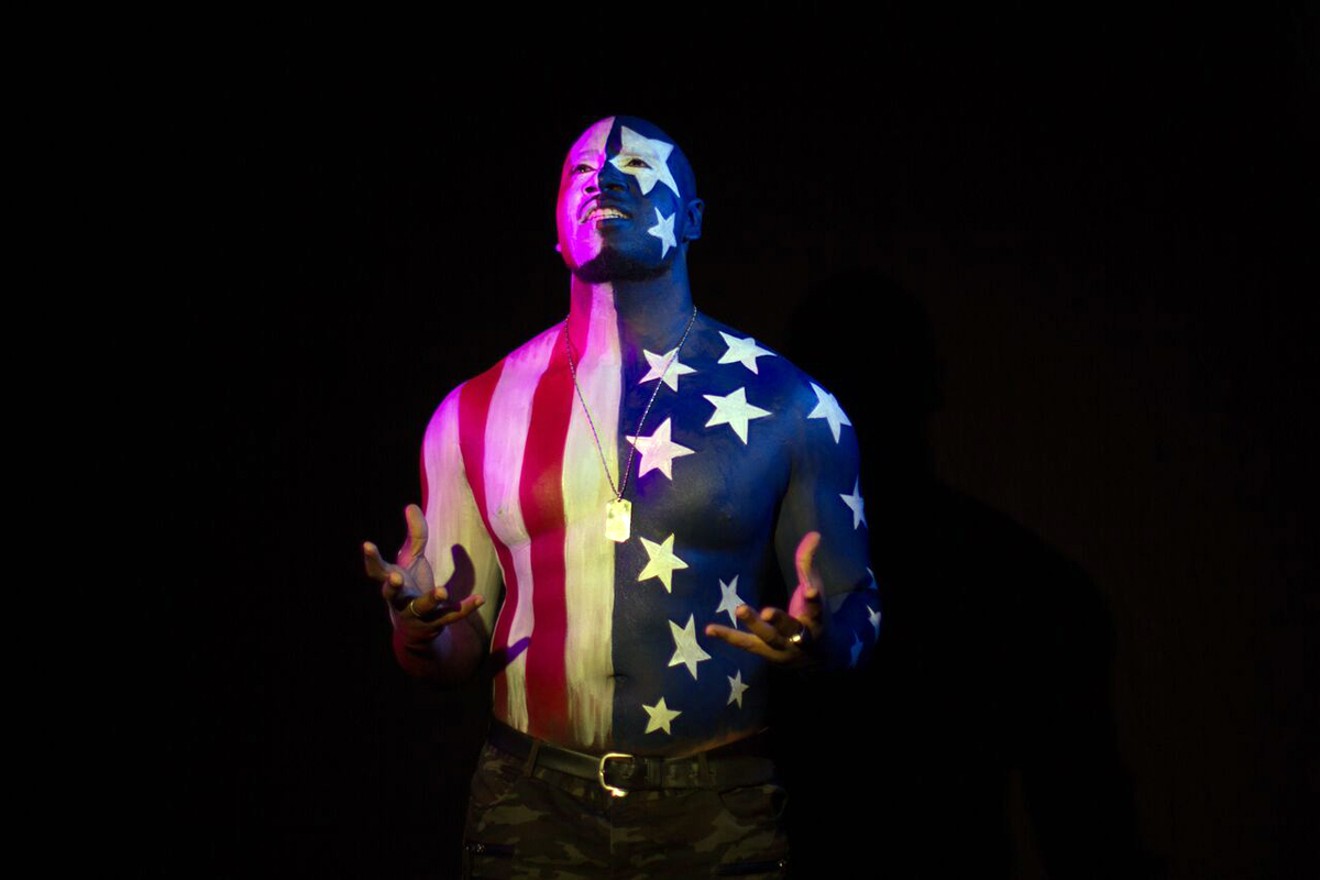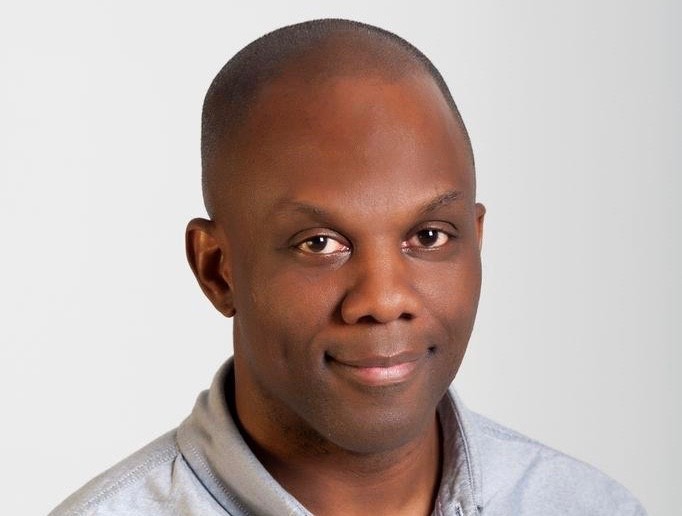Jeff Campbell once fancied himself the next Mos Def.
From 1997 to 2006, Campbell led the Hip-Hop Coalition, a project he formed in the wake of a drive-by shooting at Spin Records & Tapes in Five Points. The Coalition set out to bring pride and a sense of community back to the neighborhood with a hip-hop block party and fundraiser for the store’s owner, then became an after-school program educating youth in the pillars of hip-hop: breakdancing, graffiti, emceeing and deejaying.
Campbell, who began rapping under the moniker Apostle in 1996, ran the project while building his music career. He started out as a solo act, but in 1998 began fronting Heavyweight Dub Champion, which performed spiritually driven, socially conscious music at the nexus — if you can imagine it — of electronica, hip-hop, dub, funk and reggae.
The band’s popularity suddenly skyrocketed in 2006, and it started headlining major festivals. With a flurry of other youth-focused music nonprofits taking root in Denver, Campbell shuttered the Hip-Hop Coalition and moved to San Francisco, where Heavyweight Dub Champion was then based, and began touring with the group.
The switch had its downsides.
“Had somebody told me that I was going to be playing in front of 15,000 people at a bunch of hippie festivals, kids on ’shrooms hugging each other to death — I mean, if somebody told me that’s where I was going to find my audience, I would have laughed at them, or quit, or something,” he says.
After a concert at Sherpa and Yeti’s in Breckenridge, he was sitting at the merch table when a white woman passing by threw up a black-power fist and said, “Right on, brotha!”
“Am I more Michael Franti than Mos Def?” he wondered.
That spiraled into an identity crisis.
“I had to realize that I was not perceived as the person that I saw myself as,” he says.
That crisis, coupled with a dispute with the band’s new manager over who owned Heavyweight Dub Champion’s songs, ultimately made him quit the group and return to Denver.
After sitting on some nonprofit boards and working a soul-crushing administrative job, he found himself longing for a creative outlet. He decided that theater would allow him to effectively tell stories through production design, music and performance.
In 2013, he wrote and directed the play Who Killed Jigaboo Jones?, a sardonic look at racism in the United States. Although it earned him some fans, Jones incited controversy in the arts community by relying on blackface and over-the-top racist stereotypes in its promotional materials and the performance itself.
Bitter and burned out, Campbell moved to Georgia in 2016 to work with the Genesis Prevention Coalition, a nonprofit that provides services for veterans. Although he found meaning at Genesis, outside of his job he found himself surrounded by gun-toting, Trump-loving conservatives. He began to ruminate on the social and political value of his life’s work, his regrets and his creative victories. All he wanted to do was come back home and figure out how to throw himself into theater like he had hip-hop and create a new black theater troupe. Thus, Emancipation Theater Company was born.
Seeing firsthand how little the United States had done for soldiers returning from wars in Iraq and Afghanistan, he wrote Honorable Disorder, which he’s directing as the inaugural production of his new theater company.
He’s hoping that Emancipation will bring black theater — something that’s been largely missing since Shadow Theatre Company founder Jeffrey Nickelson died in 2009 — back to Denver.
Campbell notes that there are other black theater projects in town, including The SOURCE Theatre Company, but says that none of them are as consistent as he would like them to be.
“Denver needs a black Buntport,” he says, referring to Denver’s experimental theater troupe and its quirky, poignant shows. “Those guys kick ass. They’re young, hip, interesting, provocative risk-takers. There’s plenty of that in town, but we need a home like that, and we need to have that equivalent, culturally.”
Emancipation Theater’s name comes from a Marcus Garvey quote popularized by Bob Marley’s “Redemption Song”: “Emancipate ourselves from mental slavery, for though others may free the body, none but ourselves can free the mind.”
Much of Campbell’s vision is based on strengthening relationships between black-owned businesses, audiences and artists. But offering up a black theater company for the black community in Five Points, he faces a daunting question: How much of a black community remains?
“I didn’t say it was going to be easy,” he says, laughing. “I realize that community doesn’t look like it used to look. I recognize that we got people who do not give a fuck. We’ve got people who are happily displacing our community with a nice big ‘Fuck you, and can I get a cortado?’ I’ve been in this community a long time, and I understand that.”
He likens running a black theater company in a gentrifying neighborhood to a Chinese man running a Chinese restaurant that serves people from all backgrounds. What Campbell delivers is culturally authentic, and there’s something for everyone — including newcomers to Five Points — to engage with in his work.
Part of why he chose veterans’ issues as the subject of Emancipation Theater’s inaugural play is because people of all political and cultural identities can find common ground in them. And focusing on that population allows him to raise political questions that have long plagued him.
“We’ve got to transform the dialogue around veterans,” he says. “Let’s start there. ... They’re a marginalized group. Look at them and the suicide rate as compared to other citizens. Look at them and substance abuse as compared to other citizens. We start there, and we find our commonality and ownership.
“You want to talk about supporting our troops?” he adds, referring to Donald Trump. “This fool is talking about kicking out LGBTQ servicemen and -women. You fu… you liar. You ain’t supporting our troops. You’re a liar. You’ve got immigrant troops being deported right now. You’re a liar.”
The play stars Denver poet and actor Theo Wilson as veteran DeShawn Foster, a fictional character who survived Operation Iraqi Freedom only to struggle once he returned home to the United States.
Played by Devon James, the story’s antagonist is a white social worker with a messiah complex named Samantha Stewart who moves to Five Points, ready to save Foster and boost her career. Campbell based her character on the experience he’s had with so many white people who gentrify neighborhoods while claiming to have answers for the black community.
“I’ve seen a lot of the social-worker saviors, but I’ve seen them stumble and not know what to do,” he says, recalling a dinner he attended with Denver Foundation brass and the late civil-rights leader Vincent Harding. A Foundation staffer asked, “How do we get more black people involved in the community, involved in the things we’re initiating with the Denver Foundation?”
“I said to them, ‘How many black friends do you have?,’” Campbell remembers. The Foundation leaders were taken aback by the question, and Harding, in his measured voice, said, “Often, we’re invited to the board table and not the dinner table.”
Honorable Disorder gives Campbell the chance to raise provocative social issues like these while entertaining audiences.
“I want to write stories that move people,” he says. “And I want to be stealth about my activism. I don’t want to be a nonprofit looking for charitable donations. And I don’t want to be hitting people over the head with a message and lecturing people. I want to have fun. I want to tell stories with real characters and real people that people can relate to. And I want to add social commentary to that, which is easy to do if the characters are real.”
Honorable Disorder, April 6 to 29, Cleo Parker Robinson Dance, 119 Park Avenue West, $25, emancipationtheater.com.
[
{
"name": "Air - MediumRectangle - Inline Content - Mobile Display Size",
"component": "12017618",
"insertPoint": "2",
"requiredCountToDisplay": "2"
},{
"name": "Editor Picks",
"component": "17242653",
"insertPoint": "4",
"requiredCountToDisplay": "1"
},{
"name": "Inline Links",
"component": "18838239",
"insertPoint": "8th",
"startingPoint": 8,
"requiredCountToDisplay": "7",
"maxInsertions": 25
},{
"name": "Air - MediumRectangle - Combo - Inline Content",
"component": "17261320",
"insertPoint": "8th",
"startingPoint": 8,
"requiredCountToDisplay": "7",
"maxInsertions": 25
},{
"name": "Inline Links",
"component": "18838239",
"insertPoint": "8th",
"startingPoint": 12,
"requiredCountToDisplay": "11",
"maxInsertions": 25
},{
"name": "Air - Leaderboard Tower - Combo - Inline Content",
"component": "17261321",
"insertPoint": "8th",
"startingPoint": 12,
"requiredCountToDisplay": "11",
"maxInsertions": 25
}
]














